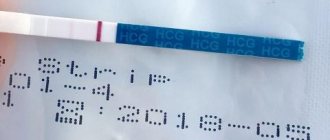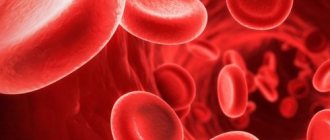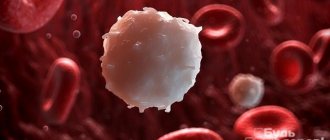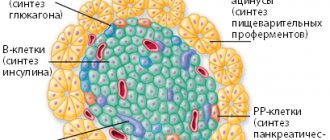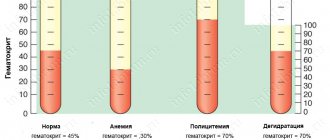Special blood tests are carried out strictly according to indications. If there is a suspicion of a pathological process. Some techniques are used extremely rarely, at least in relatively healthy people.
AFP is a specific protein, a precursor to albumin, which stands for alpha-fetoprotein. It received this name for its structure and synthesis features.
As a rule, the substance is one of those that ensure normal fetal growth. Hence the main conclusion - the compound can be found in a child in the early years of life or in a pregnant woman during and after childbirth. At least for several weeks, or even months.
These are the two main cases in which AFP is considered a variant of the clinical norm. In the adult body, protein is not retained or produced. There is simply nothing to synthesize it from, and there is no need, since the more active albumin works.
What do patients need to know?
What does an AFP blood test mean?
The abbreviation AFP stands for alpha-fetoprotein. It is a specific protein related to glycoproteins, which is formed in certain organs of the fetus and is found in large quantities in its blood serum.
In adulthood, only remnants of alpha-fetoprotein are detected in the blood, since it is replaced by another substance similar in structure - albumin.
In the body of the embryo, AFP has the following functions:
- preservation and normalization of oncotic pressure in blood plasma;
- creating protection for the fetus from attacks by the mother’s immune system;
- suppression of the fetus’s own immunity so that its body does not begin to produce antigens to new proteins appearing in the child’s body for the first time;
- maternal estrogen binding;
- binding and movement of nutrients and products of the endocrine system to those places in the body where they are needed. This is of particular importance for polyunsaturated fatty acids, which are not synthesized by the body independently, but are delivered only from the external environment with food of plant origin, therefore the role of carrier proteins in their distribution and delivery is very important.
The production of alpha-fetoprotein begins from the moment of conception, and initially the corpus luteum is responsible for this , but already at the age of 5 weeks the liver and gastrointestinal tract of the embryo begins to independently produce this protein.
Generally speaking, for the embryo and for the expectant mother, the AFP indicator is an indicator of healthy or impaired development of the child, and for everyone else it is one of the most studied and indicative markers of malignant tumors.
High AFP in pregnant women
An increased level of AFP by more than 2-3 times is observed in the following diseases:
- anencephaly (severe pathology of the formation of cranial bones and cerebral hemispheres);
- hydrocephalus;
- spinal malformation (spina bifida);
- kidney and liver defects in the embryo;
- atresia of the esophagus or intestines;
- umbilical hernia, gastroschisis (defect of the anterior abdominal wall),
- teratocarcinoma (cancer) of the yolk sac;
- pathology of the placenta;
- encephalocele (cranial hernia);
- threat of miscarriage or premature delivery;
- large fruit;
- multiple pregnancy, etc.
Important: to diagnose pathology of fetal development, it is necessary to know the exact duration of pregnancy. The AFP level alone cannot serve as a diagnostic criterion.
Indicators assessed using AFP analysis
AFP, a blood test taken from a woman during pregnancy, helps evaluate the following indicators:
- the likelihood that the child will develop disorders, for example, abnormalities in the formation of the neural tube associated with its non-fusion, such as anencephaly or incomplete closure of the spinal bones around the spinal cord;
- risks of chromosomal disorders in a child (trisomy 13, 18, 21);
- possible obstetric pathology of the mother.
Separated from other studies, the content of AFP in the blood is not indicative in terms of diagnosis. However, if its level deviates from normal, more in-depth examinations should be carried out in order to confirm or refute the suspected pathologies.
Before talking about the deviation of the AFP indicator from the norm, it is necessary to determine the gestational age with great accuracy, since this is the most important factor in interpreting the test results.
For adult patients, both men and non-pregnant women, the AFP indicator serves to identify the following diseases:
- malignant tumors in the breast in women;
- malignant tumors in the liver;
- malignant tumors of the pancreas;
- testicular teratoblastoma in men;
- poorly differentiated cancer of any other organs;
- the presence of metastasis with different localization;
- chronic hepatitis.
If the AFP level is higher than normal, this does not indicate the presence of cancer with 100% probability , but requires further examination in order to make an accurate diagnosis.
In addition, even though the diagnosis of cancer has already been made, the amount of AFP in the blood cannot determine either the stage of the disease or the degree of malignancy; accordingly, additional examinations are also needed to determine these indicators.
When treating oncological tumors, it is advisable to monitor the AFP content once a month in order to assess the correctness of the selected treatment and the positive effect of it, and, if necessary, promptly adjust it.
How to avoid getting a false positive result
Correct preventive measures give an almost 100% correct result. Plus or minus hundredths of a percent for error. If you are not prepared enough, a false positive result is possible. In this case, the doctors and the patient will initially take the wrong path.
Do not neglect basic recommendations:
- You cannot smoke during the day. Otherwise, tar, nicotine and products contained in tobacco will cause an increase in the concentration of the substance.
- You shouldn’t be nervous for a day or two. The situation is the opposite. It is likely that the natural rate will decline. Which also does not bode well for the patient.
- Physical activity is eliminated for two to three days.
- Alcohol is removed 3-4 days before the analysis.
- You cannot drink soda, tea, coffee. Only water. This restriction is imposed two days before the study.
- The diet should be gentle. Less salt, fried, smoked. No semi-finished products, marinades, or canned food.
- The situation with medications is difficult. If the annotation states the likelihood of an effect on AFP, you need to stop taking the pills for several days. True, this can be dangerous. Therefore, only with the permission of the attending physician.
Preparing for an AFP test in the blood is not difficult; you need to temporarily give up bad habits and observe a rest regime.
Indications for the study
An AFP blood test is prescribed to all women at 14-20 weeks of pregnancy (optimally 16-18 weeks). It, together with the analysis for hCG and free estriol, is included in the mandatory screening for the presence of disorders in the formation of the embryo’s body.
Unscheduled blood sampling to monitor AFP levels is performed if ultrasound shows possible abnormalities in the formation of:
- neural tube;
- anterior peritoneum;
- urinary tract.
Particular attention to the amount of AFP in the expectant mother is shown if the following risk factors are present:
- consanguineous incest when conceiving a child;
- genetic pathologies of the child’s parents or their relatives;
- the presence of genetic disorders in children previously born to the couple;
- the mother’s age is over 35 years old, if she is giving birth for the first time;
- exposure to x-rays or toxic substances ingested or exposed externally during the initial period of gestation.
For certain types of malignant tumors, the level of AFP is informative at various stages, from diagnosis to diagnosis of relapses, therefore in oncology AFP is monitored in the following cases:
- If the patient is at risk for hepatocellular cancer due to hepatitis, liver cirrhosis or alcohol abuse. Such people should undergo a screening test for AFP once every 6 months, since the likelihood of developing liver cancer is 100 times higher than the average for the population.
- If, according to the results of an ultrasound, any tumor was detected in the liver. A blood test for AFP is carried out to confirm or refute the malignant nature of the neoplasm.
- Monitoring the course of diseases such as hepatocellular carcinoma, testicular teratoblastoma, assessing the improvement or progression of the tumor, which helps determine the most effective method of influencing it.
- The amount of AFP is monitored even after the patient goes into remission in order to early detect relapse or previously undetected micrometastases.
AFP in pregnant women
As a rule, the tumor marker AFP during pregnancy is rarely determined separately. Most often, the study is carried out as part of a triple screening together with free estriol and hCG. In pregnant women, this method makes it possible to diagnose oncopathologies of the uterus and appendages, mammary glands and liver, and developmental defects of the child. It also makes it possible to predict the development of preeclampsia: an excessively high level of AFP in the blood of women in the 2nd trimester of pregnancy is a risk factor for the development of preeclampsia. Starting from the 10th week, the expectant mother's AFP level gradually increases. By week, its norm is:
| Gestational age: | Values, IU/ml | Values, ng/ml |
| up to 12 weeks | less than 15 | less than 18.07 |
| 13 to 15 weeks | 15-60 | 18,07-72,29 |
| from 15 to 19 weeks | 15-95 | 18,07-114,46 |
| from 20 to 24 weeks | 27 — 125 | 32,53-150,6 |
| from 25 to 27 weeks | 52 — 140 | 62,65-168,67 |
| from 28 to 30 weeks | 67 — 150 | 80,72-180,72 |
| from 31 to 32 weeks | 100 — 250 | 120,48-301,2 |
Important! The interpretation of the results is always carried out comprehensively. It is impossible to make an accurate diagnosis based on only one analysis.
Alpha-fetoprotein reaches its maximum concentration by week 34, after which its level begins to decline.
Norms of indicators
The normal concentration of AFP is determined by the gestational age, and after the child is born - in accordance with his age and gender. Alpha-fetoprotein is present in the circulatory system of the embryo from the moment of conception.
Its amount reaches its peak at 12-14 weeks, and then gradually decreases. In a newborn, the level of AFP in the blood is still significant (and the norm is higher for girls than for boys), but by the time the child turns 1 year old, it is established in an amount identical to that of an adult and remains throughout life.
In children older than one year and adults, the AFP content is residual. The exception is pregnant women: this protein enters their circulatory system from the embryo through the amniotic fluid, so a certain increase in the level of AFP in them is considered normal.
An increase in AFP concentration during pregnancy begins already at 10 weeks, and by 32-34 weeks this indicator becomes maximum, after which it begins to gradually decrease. The amount of AFP can be indicated in two types of measurement units: ng/ml or IU/ml.
To convert the results obtained from one measurement system to another, equalities are used:
- ng/ml=1.21*IU/ml
- IU/ml=0.83*ng/ml.
Sometimes normal AFP values are subject to correction due to differences in the biochemical methods used for research, as well as the types and brands of equipment used.
In men and women
The AFP content in the blood serum of adults of both sexes should be no more than 7.29 IU/ml or 8.82 ng/ml when determined by enzyme immunoassay.
When using certain models of analyzers to calculate the result, in particular Cobas 8000 and Roche Diagnostics, the AFP indicator is considered normal if it does not exceed 5.8 IU/ml or 7.02 ng/ml.
There are a number of factors under the influence of which the amount of AFP can change, and this will not be considered a pathology:
- most disorders in the functioning of the endocrine system;
- constant use of biotin, antibody preparations or any other drugs that affect the functioning of the immune system or the activity of liver enzymes;
Biotin affects the reliability of a blood test for AFP - patient's nationality and race. Black people have the highest amount of AFP, Europeans have an average amount, and representatives of the Mongoloid race have the lowest.
In children
The AFP indicator is separately established only for children under the age of 1 year; subsequently, it is identical to the human norm in adulthood.
For children under one year old, the following acceptable values are established, taking into account gender and age:
| Age/gender | Girl | Boy |
| 0-1 month | Not more than 15740 IU/ml | No more than 13600 IU/ml |
| 1-12 months | Not more than 64.3 IU/ml | No more than 23.5 IU/ml |
In women during pregnancy
In pregnant women, the normal concentration of AFP in the blood clearly correlates with the gestational age:
| Gestational age in weeks | Reference values, IU/ml |
| Less than 12 | Less than 15 |
| 13 | 15-25 |
| 14 | 15-30 |
| 15 | 15-60 |
| 16 | 17-65 |
| 17 | 19-75 |
| 18 | 22-85 |
| 19 | 25-95 |
| 20 | 27-105 |
| 21 | 32-110 |
| 22 | 37-115 |
| 23 | 42-120 |
| 24 | 47-125 |
| 25 | 52-130 |
| 26 | 57-135 |
| 27 | 62-140 |
| 28 | 67-145 |
| 29 | 72-150 |
| 30 | 77-155 |
| 31-32 | 100-250 |
If the pregnancy is multiple, then the norm is multiplied by the number of embryos.
Monitoring AFP after 33 weeks of pregnancy does not make sense, since this indicator no longer carries any information.
Reasons for increasing AFP concentrations and treatment methods
The increase in alpha-fetoprotein levels is due to several factors. In an adult, we are talking about a group of problems:
Hepatitis
Inflammatory liver disease. Mainly infectious in nature. Special viruses are to blame. Individual strains of the pathogen of the same name.
The disorder is accompanied by severe pain in the right side, yellowness of the skin, nausea and vomiting. Bilirubin, ALT, AST and other substances increase.
Recovery is possible. To do this, you need to contact a hepatologist or, in extreme cases, a gastroenterologist.
Treatment is complex and lengthy. A diet low in fat and easily digestible carbohydrates is prescribed.
Hepatoprotectors are definitely indicated. Special means that protect the organ from negative influences. For example, Karsil or Essentiale, Gepabene. The course continues until conditional relief occurs. Then the dose is reduced and therapy is continued.
Cirrhosis of the liver
More advanced process. It occurs in two phases. Acute is accompanied by rapid death of the tissues of the largest gland in the body.
Hepatonecrosis quickly leads to bleeding and disruption of brain function. The outcome is almost always fatal.
In the second case, we are talking about the chronic variety. AFP increases gradually as the liver is destroyed. There is an opportunity to restore normalcy. The main thing is to contact a hepatologist in time.
Treatment. Therapy is carried out with Karsil and other hepatoprotectors. The goal is to reduce the rate of organ destruction. It is difficult, if not impossible, to completely cure necrosis.
The only method is used at an early stage of the disease. We are talking about a transplant. But since there are very few donors, this is not a completely realistic option.
Liver cancer and oncology of other localizations
Different types. They are related by a group of factors.
- The first is rapid growth. The tumor rapidly increases in size in a matter of months.
- The second is infiltration. As neoplasia develops, it grows through other tissues. Therefore, it cannot be radically removed. Only part.
- The third is the tendency to metastasize. Then separate foci of tumors appear. Besides the main one.
Treatment is urgent. It is carried out in a hospital. Need surgery. Chemotherapy and radiation therapy are also prescribed. If there is a reason for this and the neoplasia is sufficiently sensitive to such influence.
Attention:
If an increase in AFP is observed in a pregnant woman, this is mainly an indication of fetal development disorders. Phenotypic or associated with unfavorable genetics.
Preparing for the study
AFP blood test requires compliance with general recommendations for preparing for the study:
- Blood should be donated on an empty stomach, after at least 8 hours of fasting, during which you can only drink water. On the day before blood collection, excessive consumption of food is not recommended.
- The optimal time for blood collection is 8-11 am.
- Taking certain medications may affect your results, so you should tell your doctor first about medications you take on an ongoing basis. The doctor will decide whether to stop taking the drug for a while or take a test without interrupting treatment.
- You should not drink alcohol during the day before blood sampling, and avoid smoking an hour before the test.
- On the eve of the study, it is not recommended to be subjected to physical and mental stress.
- Immediately before collecting the material, you need to spend 15-20 minutes at rest.
- To track the dynamics of the indicator, the analysis should be carried out in the same laboratory.
- A child under 5 years old should drink 150-200 ml of boiled water in small portions within 30 minutes prior to the blood collection procedure.
An AFP blood test for pregnant women is prescribed between 14 and 20 weeks, but it is most informative at 14-15 weeks.
What it is?
American scientists were the first to discover the protein alpha-fetoprotein (AFP) in the serum of embryos, as well as in adults in the first half of the twentieth century. It got its name because of its specificity for embryos.
Today, this indicator is of greatest interest to pregnant women, since its concentration in the blood can determine serious pathologies and disorders in the development of the fetus. Now let’s figure out what an ACE blood test means and how to understand the results of the study.
How is blood taken for analysis?
To carry out the analysis, 10 ml of venous blood is required. The nurse takes the material from a vein in the arms in the elbow area.
The nurse should wear a new pair of gloves and use a new disposable syringe with each patient. The puncture site is pre-treated with alcohol.
The material for the study subsequently becomes blood serum, which is subjected to enzyme immunoassay to determine the amount of AFP in it.
Its shelf life is no more than 24 hours at an ambient temperature of 2-250C.
When to perform this analysis
The test is usually required between the fifteenth and twentieth weeks of pregnancy.
Your doctor may also order an AFP test if:
- suspects that the patient has a liver tumor or certain specific forms of testicular or ovarian cancer; The doctor may suspect that there is a tumor, for example, if during a visit the patient feels a noticeable mass in the abdominal area or if visual examination methods (ultrasound, for example) suggest the presence of a tumor;
- the patient has been diagnosed with a tumor of the liver, testicles or ovaries and he/she is undergoing treatment, and it is necessary to check whether the therapy is effective;
- to monitor tumor recurrence.
Increased AFP. What does it indicate?
An excess of the level of AFP in the blood above the maximum permissible values at a certain stage of pregnancy may indicate the following pathologies:
- open neural tube defects such as anencephaly and spina bifida;
- umbilical hernia in the fetus;
- the absence of a section of the esophagus or its connection with the trachea by fistulas, this diagnosis (atresia) has an extremely unfavorable prognosis and is considered a severe malformation;
- duodenal atresia, as a rule, is treated surgically immediately after the birth of the child, after which he can lead a normal life;
- Meckel-Gruber syndrome, which is a whole set of developmental anomalies, including the presence of extra fingers and toes, an occipital hernia, numerous cysts on both kidneys, fibrotic changes in the liver;
- death of fetal liver cells due to intrauterine viral infection;
- a chromosomal abnormality called Shershevsky-Turner syndrome, the main symptoms of which are short stature, the presence of excess skin folds on the neck, and sexual immaturity;
- cleft of the anterior abdominal wall;
- hydrocephalus;
- oxygen starvation of the child in the womb;
- defects in the formation of the placenta;
- Osteogenesis imperfecta;
- oligohydramnios.
An elevated AFP level suggests the presence of the above pathologies, but does not directly indicate a diagnosis. For further diagnosis, a pregnant woman should undergo tests such as amniocentesis and ultrasound.
If the fetal pathology is not confirmed, and the AFP level is still elevated, then there is a high probability of various complications during childbirth, such as premature delivery or too low fetal weight. In addition, a sharp increase in AFP in the blood of a pregnant woman can be a harbinger of fetal death after 10-14 weeks.
A blood test in adult men and non-pregnant women, as well as children over 1 year of age, that shows an excess of AFP levels suggests the presence of one of the following diagnoses:
- Liver cancer: additional examinations for this disease (ultrasound, CT, MRI, biopsy) are prescribed when the level reaches 15 ng/ml in patients at risk. The level of AFP in the blood shows an increase 1-3 months before the onset of clinical symptoms of cancer, which contributes to early diagnosis and timely treatment. In 90-95% of patients with hepatocellular carcinoma, an increase in AFP levels above 200 IU/ml is observed.
- Embryonic cancer (teratoblastoma) localized in the testicles and ovaries. Based on the level of AFP and hCG, taking into account the location of the tumor and the presence of metastasis, one can judge the prognosis for the patient.
- Oncological diseases of various organs, in which AFP shows a slight increase and is not a sufficiently informative indicator. However, an increase in the level of AFP to 500 IU/ml in combination with increased CEA is a sign of the presence of metastases in the liver.
If, after treatment of a malignant tumor, AFP decreases and then increases again, this indicates a relapse of the disease or the presence of metastatic lesions.
When it comes to germ cell tumors, an increase in AFP levels in 100% of cases means a relapse, so appropriate treatment should be started without waiting for the clinical manifestation of the disease. In addition, if after surgery the AFP indicator does not decrease, then the tumor has not been completely removed or there are already metastases.
If the increase in AFP level is temporary and does not exceed 100 IU/ml, then the following diseases can be assumed:
- hepatitis or cirrhosis of the liver;
- liver damage due to excessive alcohol consumption.
What is AFP and what problems does it solve?
Alpha-fetoprotein is, as mentioned earlier, a protein, mainly transport. Although he does other work.
The substance performs a group of important functions in the body of an unborn person:
- Ensures normal lung function immediately after birth. If the amount is insufficient, problems with the respiratory system often occur.
- Regulates fetal blood pressure. Because the body of a small person cannot maintain balance on its own (relatively speaking).
- Like albumin, alpha-fetoprotein is capable of transporting important substances. Those that are necessary for the fetus in early and even late periods of development. Throughout the mother's pregnancy. In the same way, the substance binds waste products and carries them away. Cleanses the body of harmful compounds and waste material.
- Finally, alpha-fetoprotein provides protection against a large number of female sex hormones. Estrogens. Otherwise, all sorts of phenotypic anomalies develop. Those that are not encoded in genes.
An adult cannot have a promotion. Fine. But pathologies are possible in which the concentration increases.
In general, alpha-fetoprotein is considered as a tumor marker, that is, when the indicator increases, we are often talking about cancerous tumors.
This is not an axiom, so there is no need to panic. There are other possible reasons for deviations from the norm. It is important to consult a doctor in time and undergo additional examination.
Reasons for the low level
We can talk about a reduced level of AFP in the blood in pregnant women.
A deficiency of this protein may indicate the possible development of the following pathologies:
- genetic pathologies: Down syndrome, Edwards syndrome, Patau syndrome;
- intrauterine embryonic death;
- likelihood of miscarriage;
- a normal embryo has not formed due to defects in the egg or fertilization by two sperm at once, as a result of which chorionic villi grow in the womb instead of a fetus, taking the form of bubbles. This pathology is called hydatidiform mole and can become a malignant tumor with metastasis;
- delayed fetal development;
- frozen pregnancy.
The AFP level is not used separately as an indicator of child developmental disorders. In addition, if deviations from the norm in the concentration of AFP in the blood of a pregnant woman are detected, the gestational age should once again be clarified: it is of key importance for assessing the results of the analysis.
Insufficient levels of AFP in the blood of a pregnant woman may be due to obesity or diabetes mellitus.
For cancer patients, a decrease in the level of AFP in the blood is a favorable factor and indicates the correctness of the chosen treatment tactics.
Increasing values
Elevated levels of alpha-fetoprotein in non-pregnant women, children and men may indicate the following malignant processes:
- hepatocellular carcinoma, hepatoblastoma (malignant neoplasms of the liver);
- liver metastases;
- oncology of the pancreas, colon or sigmoid colon, lungs, uterus and appendages, breast, gallbladder and bile ducts, as well as squamous cell cancer of the esophagus;
- germ cell pathological formations in the testicles or ovaries;
- embryonal tumors (teratomas);
- acute or chronic liver pathologies (hepatitis, alcohol intoxication, failure, cirrhosis, jaundice);
- liver injuries, surgical operations;
- kidney stone disease;
- blockage of the bile ducts;
- tyrosinemia (congenital inability to break down the amino acid tyrosine);
- ataxia-telangiectasia (Louis-Bar syndrome) - non-inflammatory enlargement of small vessels and cerebellar ataxia.
Important! Malignant processes are indicated by an excess of the AFP norm by several tens of times. In primary cancer, a concentration of the substance of more than 10 IU is observed in 95% of patients, and in half of the cases, the release of a tumor marker is recorded a quarter before the first symptoms of the disease.
How to normalize the indicator level
The method of bringing the concentration of AFP in the blood back to normal directly depends on the cause of the deviation.
If fetal developmental disorders are detected during pregnancy, causing an increase or decrease in AFP levels, then the severity of the defects is assessed using additional diagnostic methods and a decision is made to continue or terminate the pregnancy.
In the case of malignant tumors, the AFP level will decrease with appropriate treatment if it has the desired effect. The level of AFP is especially indicative in the treatment of embryonal tumors. After removal of testicular teratoblastoma, AFP levels, together with hCG, should be monitored every 7-10 days for several weeks.
If these indicators are normalized, we can say that the removed tumor was stage 1, otherwise, most likely, there are metastases in the lymph nodes or other organs, which requires additional treatment.
Thus, the level of AFP in the blood is an important indicator of the successful course of pregnancy and the presence or absence of cancer, but it rarely serves as a reason for making a diagnosis without the results of additional tests and examinations.
Interpretation of the results is done only by the attending physicians; independent diagnosis and self-medication is unacceptable.
Article design: Mila Friedan
Cases of decreased AFP marker levels
A deviation towards a strong decrease in the indicator also warns of the presence of serious disorders in human health. A similar fact is usually recorded in women during pregnancy, but sometimes it can be present in other cases.
The test result with a sharp decrease in the parameter indicates violations:
- genetic disorders in the formation of the chromosomal DNA series - Patau, Down or Edwards syndrome;
- fading of pregnancy with subsequent death of the fetus;
- excess weight during pregnancy;
- active growth of the chorion, which causes inhibition in the development of the embryo;
- Mechanical injury to the body can provoke a sharp decline.
A low level of protein indicates disturbances in the development of the unborn baby, so additional examination will be required. This will allow you to identify deviations and assess the severity of the pathological process. After the research, a decision is made on further actions.
Features of the analysis, norm, types of research
To carry out an analysis for AFP, biological fluids of the body are used, most often venous blood.
As with most diagnostic tests, there are certain rules that will help achieve reliable results:
- 1-2 weeks before the proposed study, it is recommended to stop taking any medications or dietary supplements. If medications are necessary for the treatment of a chronic illness and refusing them threatens to worsen the patient’s condition, you must definitely inform the laboratory assistant or treating specialist about this. Some medications distort the results.
- For about 2-3 days you need to limit physical activity - going to the gym, morning jogging, heavy physical work. You should try to avoid nervous tension and stressful situations.
- The day before submitting the biomaterial, do not eat fried, spicy or smoked foods. Heavy foods affect metabolic processes and liver health.
- On the day of the test, you need to skip breakfast, don’t smoke, don’t be nervous, and sit quietly for at least 30 minutes before the procedure.
- In addition to breakfast, you should also avoid drinking large amounts of water. A glass of weak tea will not spoil the picture, but an amount of liquid of more than ½ liter will provoke an increase in blood volume in the bloodstream, which may show significantly lower results than they actually are.
There are two ways to conduct the test:
The normal indicator depends on the method of analysis, which may differ significantly. Therefore, before conducting a study, it is necessary to inquire exactly what method the selected laboratory uses. And in the future, if there is a need to repeat the analysis, either do it in the same laboratory, or look for one that uses a similar testing method.
What are the normal alpha AF values?
The general norm for analysis of alpha-fetoprotein in adult men and women is 15 ng/ml of biomaterial. However, the indicators of a specific protein are also directly affected by the age category of patients, so we will consider the optimal AFP values for both sexes in detail.
- In newborn boys, the norm is considered to be from 0.5 to 13,600 U/ml, in girls – from 0.5 to 15,740 U/ml.
- In boys from 1 month to 1 year, the optimal values are within 23.5 U/ml. In girls, these figures are 2.5 times higher, amounting to 64.3 U/ml of blood.
- The level of alpha-fetoprotein in children over one year old, as well as adult men and women, is no more than 6.67 U/ml.
The result of the study also depends on the method by which it was carried out. Therefore, it should not be surprising that the test rate for alpha-fetoprotein in women, men and children may differ if repeated tests were carried out in different laboratories.
Both the attending physician and the laboratory staff are aware of this specificity of the analysis, so there should be no errors in the final data. If the results of the study are alarming, it would not be a bad idea to conduct it again. If the norm of alpha-fetoprotein in a blood test in men, women or children is again violated, the doctor should prescribe additional diagnostic methods.
